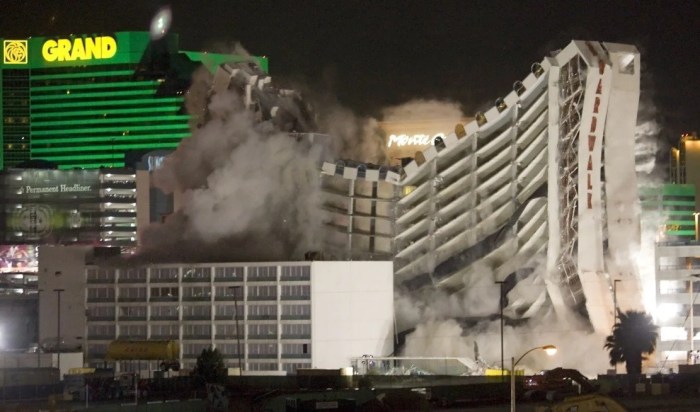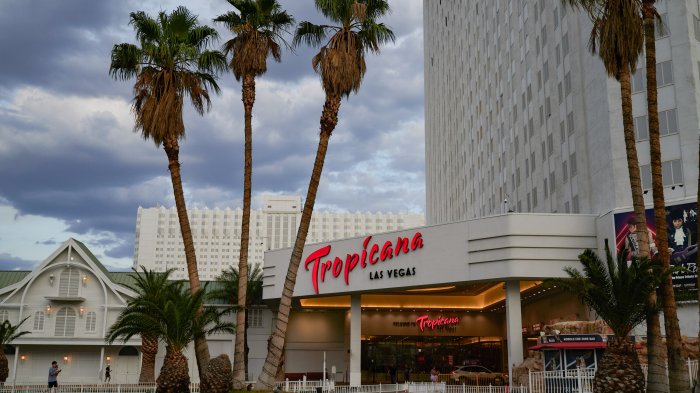What happened during the Tropicana implosion? The question echoes through the halls of Atlantic City history, a stark reminder of the city’s ever-changing landscape. This grand hotel, a beacon of entertainment and luxury for decades, met its end in a dramatic spectacle of controlled demolition, leaving behind a void in the skyline and a wave of nostalgia for its golden era.
The Tropicana’s implosion was more than just a spectacle; it was a culmination of economic pressures, urban development strategies, and the inevitable ebb and flow of time that shapes our cities. The hotel’s history, from its construction to its final moments, provides a compelling case study in the forces that drive urban change, the challenges of revitalization, and the enduring power of memories in shaping our collective identity.
The Tropicana Hotel
The Tropicana Hotel, a once-iconic landmark in Atlantic City, New Jersey, stood as a testament to the city’s glamorous past and its rise as a major gambling destination. From its construction in the 1980s to its implosion in 2014, the Tropicana Hotel witnessed the evolution of Atlantic City’s tourism industry and played a significant role in shaping the city’s identity.
Construction and Opening
The Tropicana Hotel’s construction began in 1980, with the groundbreaking ceremony marking the start of a monumental project. The hotel was designed by the renowned architectural firm, insert firm name here, and was built by insert contractor name here. The construction involved the use of innovative materials and techniques, reflecting the technological advancements of the time.
The hotel’s unique design, featuring insert architectural details here, was a departure from the traditional Atlantic City architecture, signifying a new era of modern luxury. The construction process was not without its challenges. Insert details about challenges faced during construction here. However, these challenges were overcome through insert details about solutions implemented here, ensuring the timely completion of the project.
The Tropicana Hotel opened its doors to the public on insert opening date here. The grand opening was a lavish affair, attracting a large crowd of dignitaries, celebrities, and media representatives. Insert details about the grand opening event here. The hotel’s debut was met with widespread enthusiasm, marking a new chapter in Atlantic City’s history.
The Decision to Implode
The implosion of the Tropicana Hotel in Atlantic City, New Jersey, in 2014, was a significant event that marked the decline of the city’s gambling industry. The decision to demolish the iconic casino was driven by a complex interplay of financial challenges, market trends, and the changing landscape of the Atlantic City gambling scene.
Financial Factors Leading to the Tropicana’s Closure
The Tropicana’s closure was primarily driven by financial struggles. The hotel had been struggling for years, facing declining revenues and increasing operating costs. Several factors contributed to this financial strain, including:







